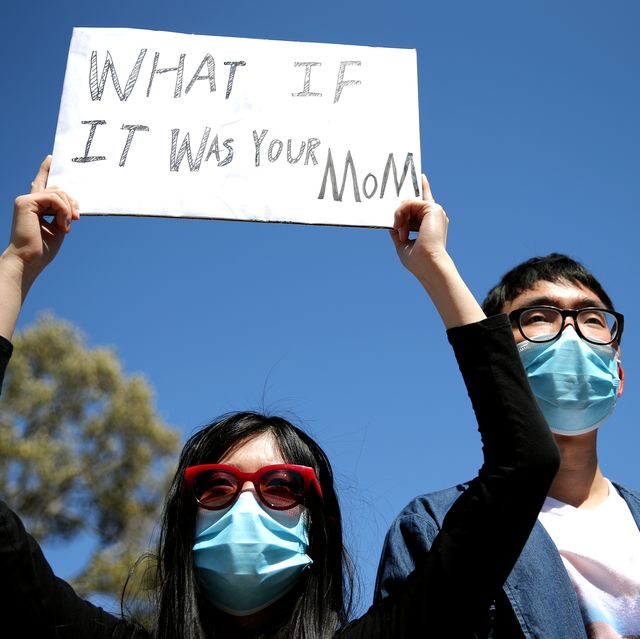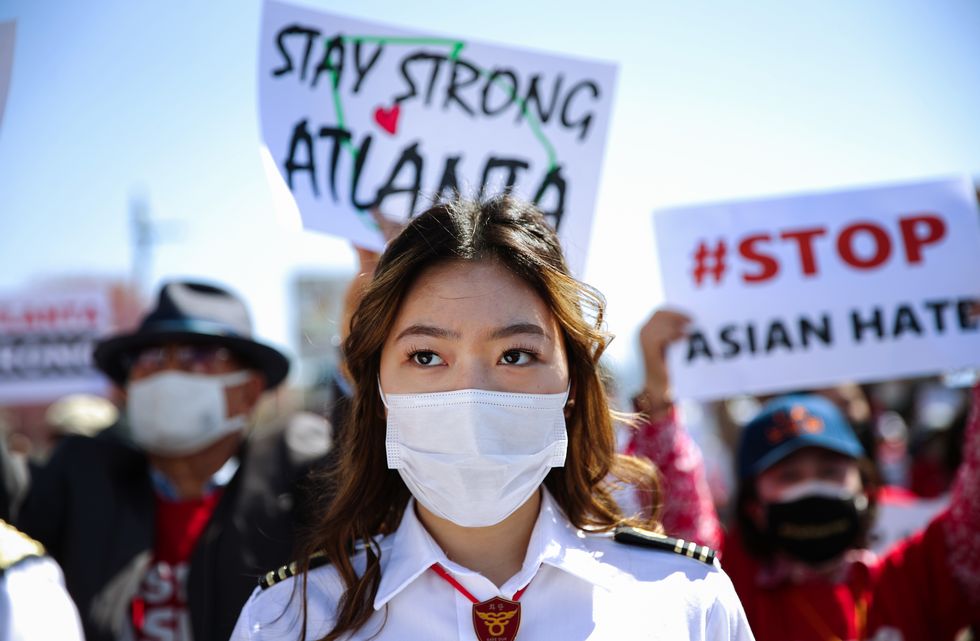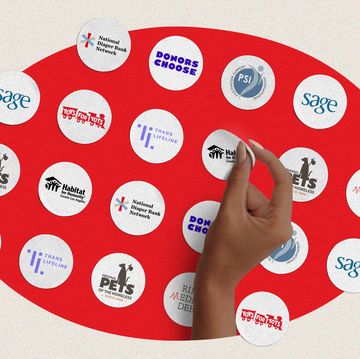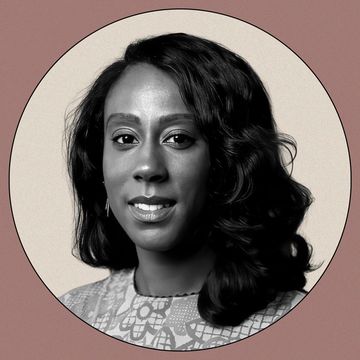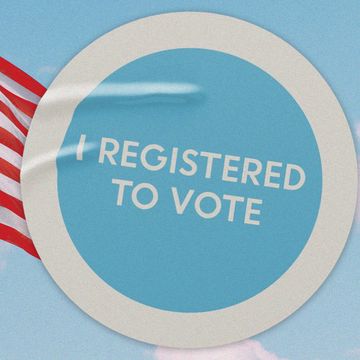In 1937, Nguyễn Thị Hải was 17 years old when the message arrived that changed her and her family’s fortunes. It summoned her to a military base occupied by the French, who at that time ruled Vietnam. To protect her chastity, a cousin accompanied her to the meeting.
At the base, Nguyễn was separated from her cousin and informed she would be examined for sexually transmitted diseases. She insisted she was unmarried, a quaint way of saying she was a virgin. The military doctor proceeded anyway –– but not before Nguyễn fought back so fiercely, the doctor required three tries to slide in the speculum.
Nguyễn’s story, one of many in scholar Christina Elizabeth Firpo’s 2020 book Black Market Business, is just one example of the ways in which Western colonial powers have enacted violence on Asian women on pretexts of policing sex and its side effects. Such measures immediately jeopardized women’s safety and, in the long term, propagated harmful conceptions of Asian women that still persist today.
In March, during a press conference after a string of shootings at Atlanta-area spas that left eight people, six of whom were women of Asian descent, dead, police said the white shooter claimed to suffer from “sexual addiction” and wanted to “eliminate temptation.” While there was no evidence the women who were killed were sex workers, once again the stereotype of Asian women as submissive objects for white men’s pleasure reared its head. In the aftermath of the shootings, it was hard to not to see how Western exploration in Asia was inextricable from the colonial project of claiming territory.
“They would draw maps that would include curves and mountains to look like breasts. They would talk about penetrating the land,” says Firpo, a professor at California Polytechnic State University. “They both played out their desire to take the land, and their desire to take the women in their discussions of taking the land.”
As France, Spain, the Netherlands, Britain, and the U.S. set up Asian colonies, brothels for troops sprung up, sometimes under official military oversight. But those militaries also wanted their troops healthy and ready to fight, which required controlling the spread of venereal disease. Rather than inspecting their own men, these colonial powers turned to investigating local women. If they were found to have a disease, they were deemed a sex worker; if they were a sex worker, they were deemed likely to have venereal disease. The result was an inescapable and circular logic that deemed Asian women simultaneously contaminated and sexually available — both a threat and an attraction.
For Nguyễn, the impacts of her experience radiated beyond her body. After the exam, she returned home in tears and bloody underwear, according to Firpo’s book. Her parents, the owners of a popular bar, complained to colonial authorities. The response was that Nguyễn had been found to have a disease, was a known prostitute who went by the name “Little Peanut,” and, if the family didn’t drop the case, they would need to pack up or give up their bar license, which was granted by the French. Though there was no proof of sex work or disease apart from the claim made by the military (and French medical equipment at the time was known to be so unsanitary that it also spread illness), Nguyễn and her family were forced into accepting her forcible examination, which today would be classified as rape.
In some narratives of the Atlanta-area murders, a similar dynamic is at play. Police and some media have seemed to accept one story — the white shooter’s — over that of the women who were killed, according to Ju Yon Kim, a professor at Harvard University.
“It is impossible to separate the horror that has occurred from the racial and gendered stereotypes that have stalked Asian women,” Kim wrote in a letter on behalf of Asian-American faculty in The Harvard Crimson. “We know the pain of learning of these murders, then witnessing the double erasure of those killed by how the shootings have been portrayed.”
After the attacks, police in cities from Seattle to New York promised to increase patrols around Asian spas. Advocacy groups argued against this, pointing to recent histories of immigration raids and police abuse. Such harm in the guise of help was also part of the colonial project throughout Asia. In colonial Indochina, women were sent to venereal-disease clinics, where they were locked behind bars, deprived of the ability to make an income, and sometimes plunged into acid baths so painful that they had to take opium for relief. Vietnamese-language newspapers of the time compared the clinics to jails. Those fortunate enough to not be detained were required to report for weekly pelvic exams and forbidden from standing on the street in front of their homes. These punitive measures drove sex workers deeper underground, presaging the way today’s criminalization of sex work reduces safety and earning potential.
In the wake of the Atlanta shootings, discussions on combating anti-Asian violence need to also keep in mind the stigma toward sex workers, according to Elene Lam, the executive director of Butterfly, a Toronto-based support network for Asian and migrant sex workers. “When we fight against racism, Asian workers who work in massage parlors and the sex industry should not be left behind,” Lam shares via email. “We should not forget the Asian women who were murdered because of the harmful moralistic view on sex and whorephobia.”
Historically, Asian sex workers have not been passive victims, adds Mariah Grant, the director of research, organizing, and advocacy for the Sex Workers Project at the New York-based Urban Justice Center.
“Asian sex workers are simultaneously hypersexualized and stereotyped as sexually submissive, a reductive and inaccurate identity used by some anti-trafficking organizations to portray all sex workers in the region as victims in need of rescue,” says Grant via email. “In reality, some of the most significant and impactful sex worker-led organizing, research, and collective action demanding human-rights protections has come out of the region.”
One example of such collective action came two years after Nguyễn’s ordeal in 1939. After authorities announced plans for pelvic exams, a group of singers believed to be sex workers published a letter in the newspaper Việt Báo. “Oh! What did we do to deserve a person as decent as you, sir?” they wrote sarcastically. “That’s so very kind.”
Today, such grassroots mobilization can be seen in Butterfly’s “Call for Justice,” which outlines demands ranging from the decriminalization of sex work to better access to government protections. Red Canary Song, a Chinese massage-parlor coalition in the U.S., shared a similar call co-signed by organizations in Hong Kong, Queensland, and beyond. The work of groups like Red Canary Song and other organizations around the globe is hoping to write a different kind of history about Asian women.
April Yee is a writer who has been published in Newsweek, Electric Literature, and Ploughshares online. She is collaborating with historian Elise Hanrahan and artist Lena Chen on a project examining the colonial policing of women on pretexts of prostitution and venereal disease. Follow her on Twitter @aprilyee.
Get Shondaland directly in your inbox: SUBSCRIBE TODAY
